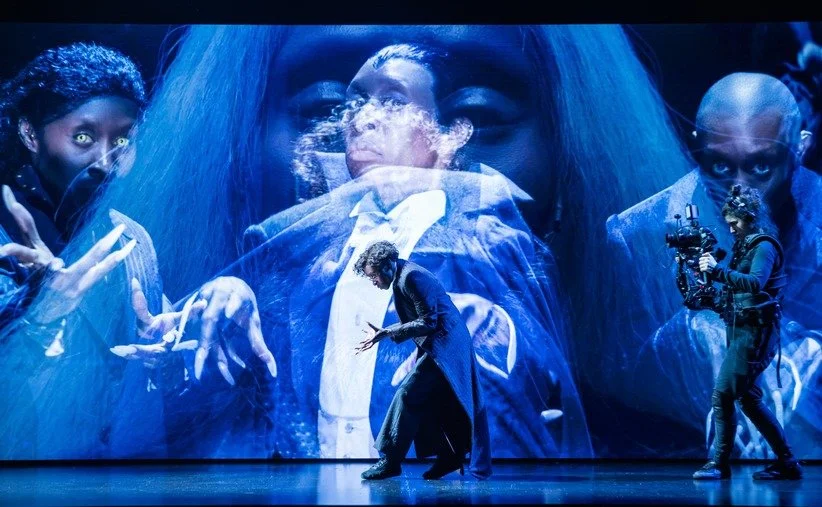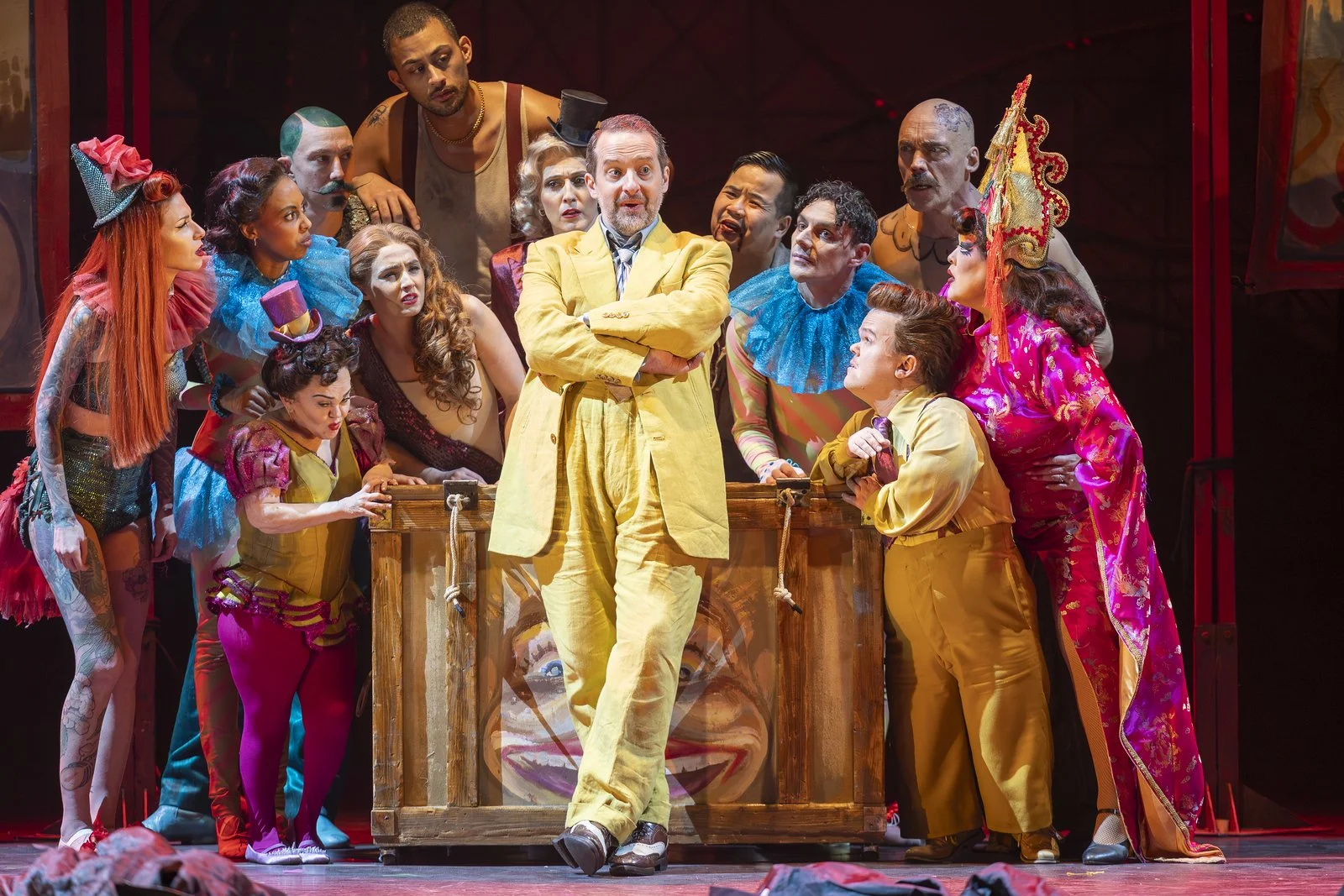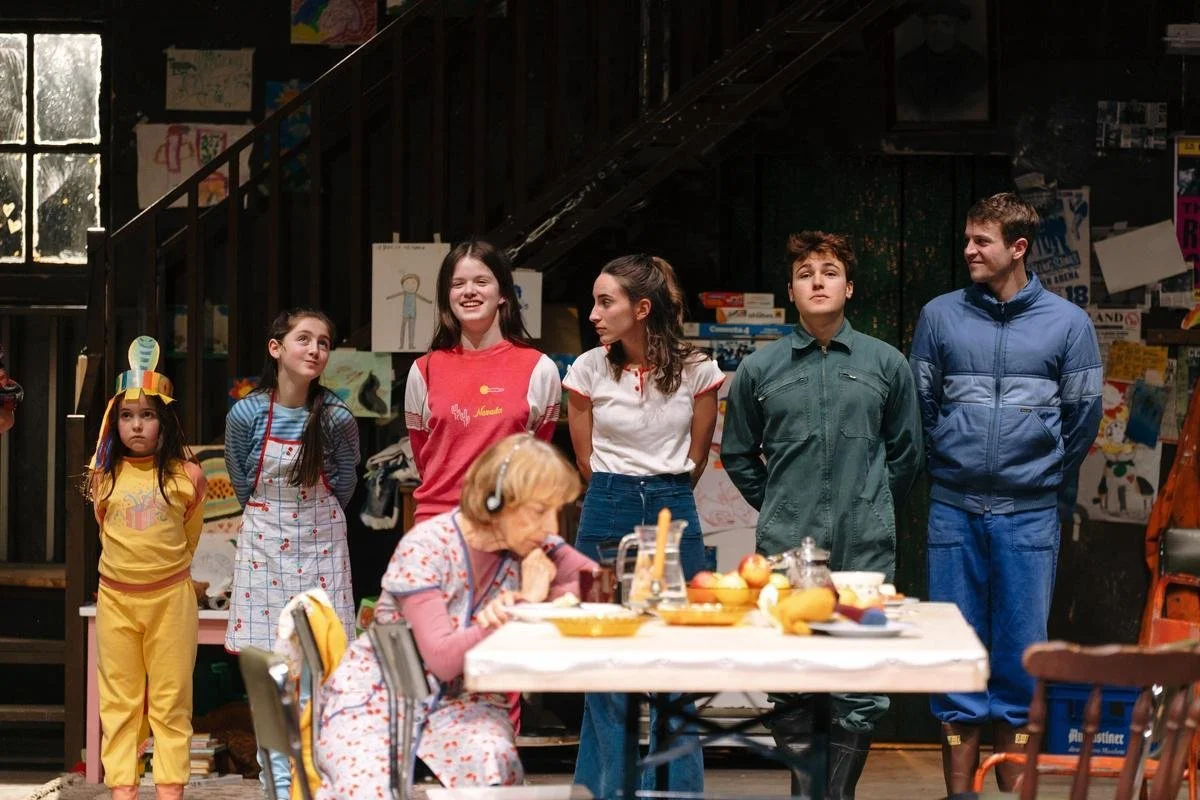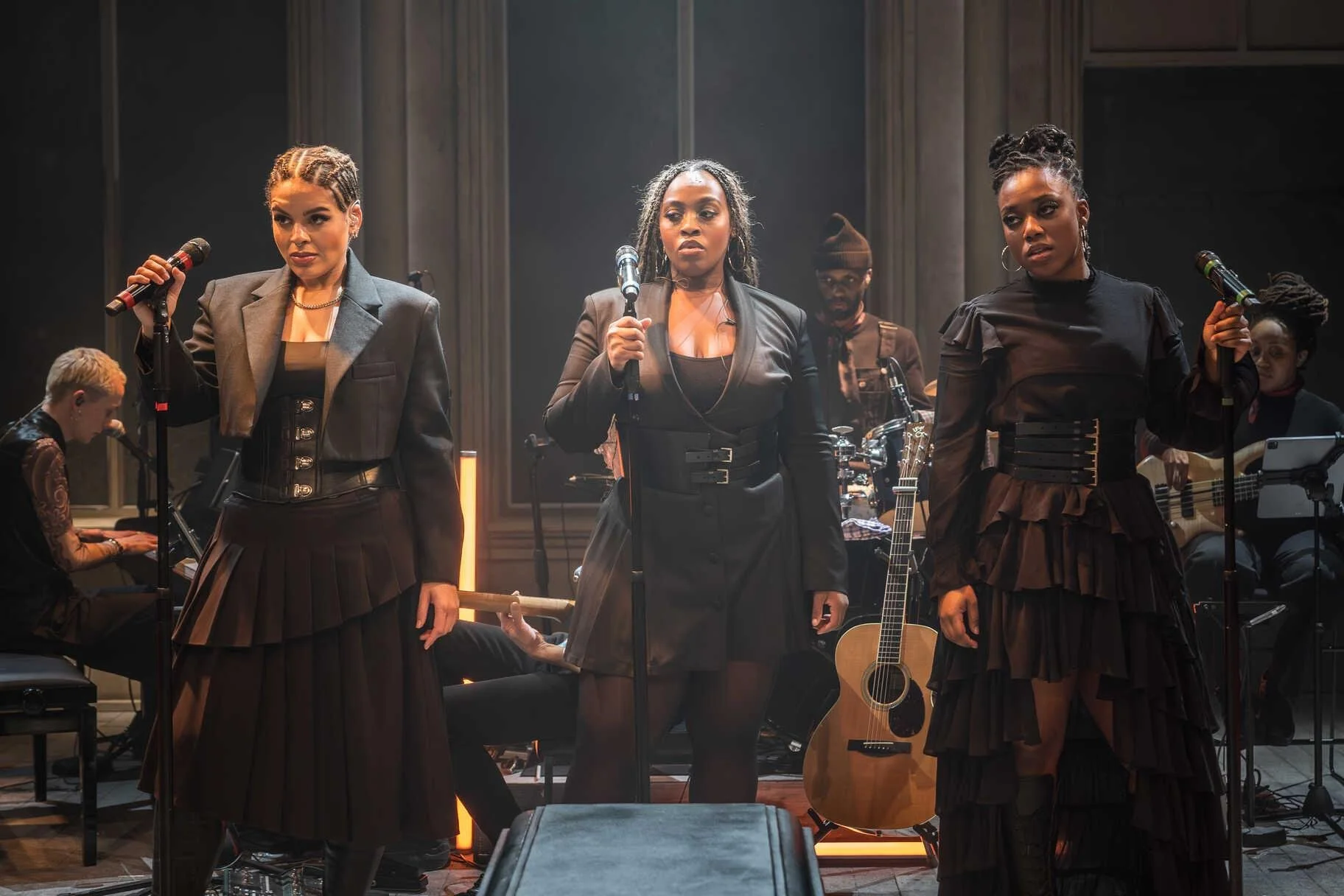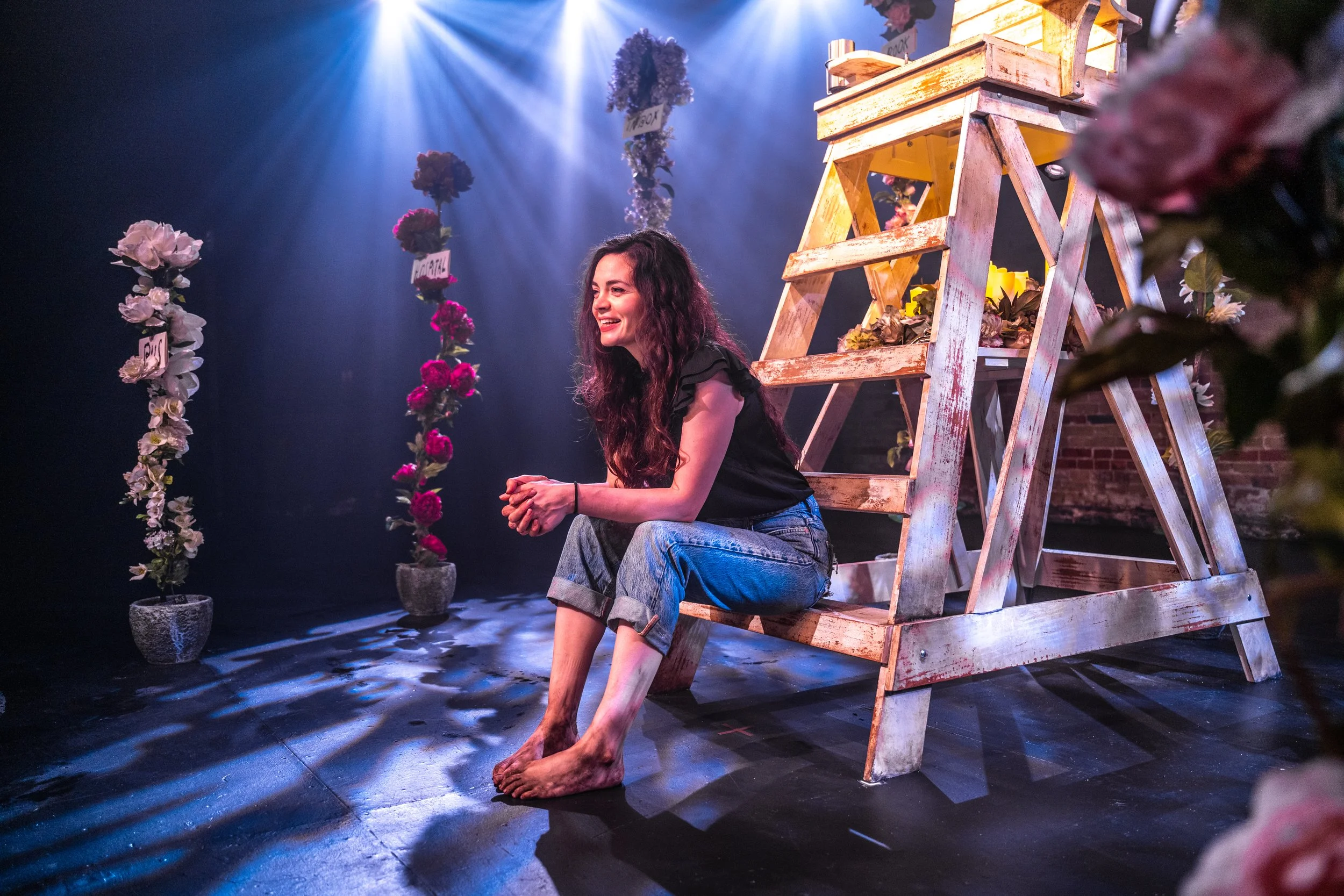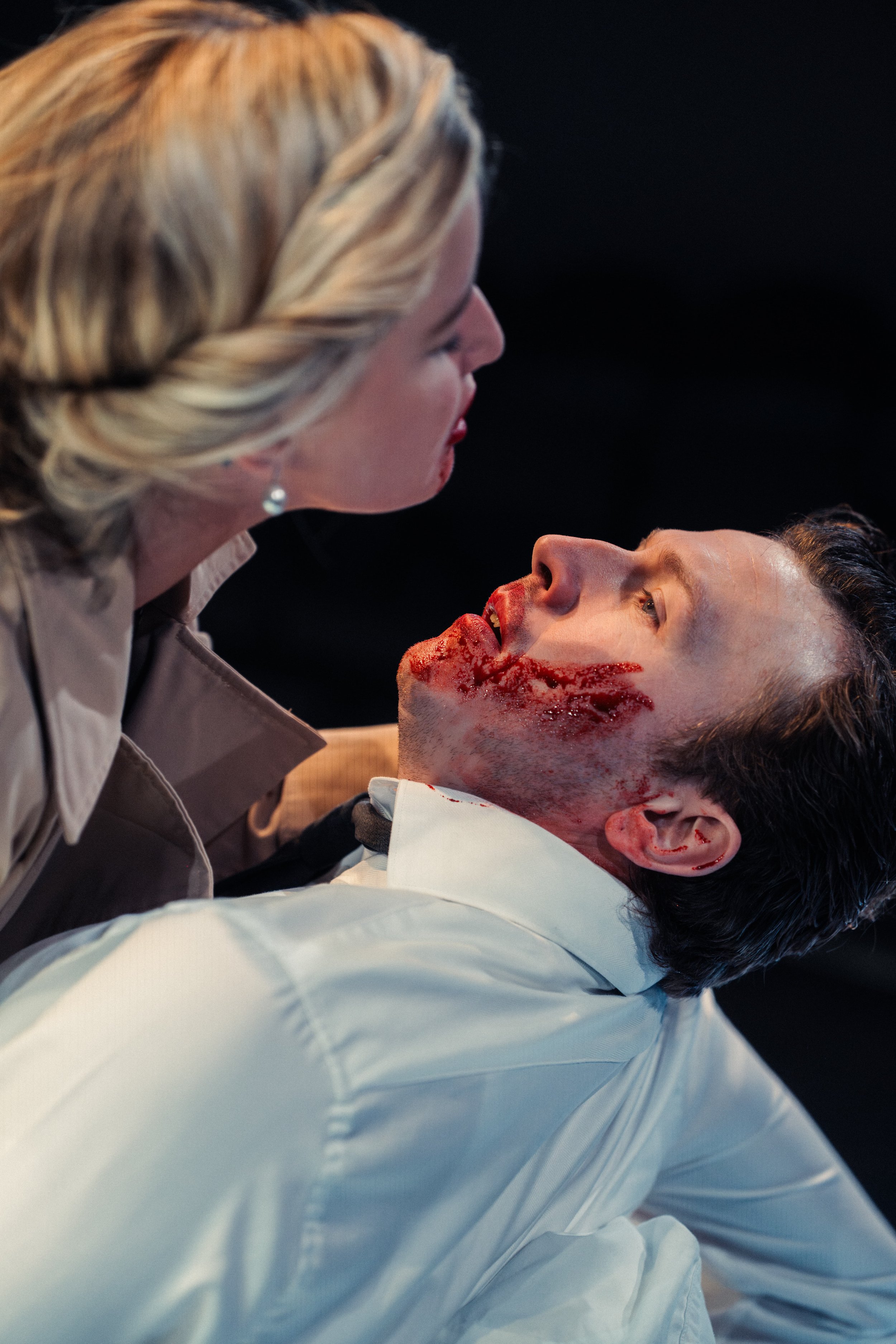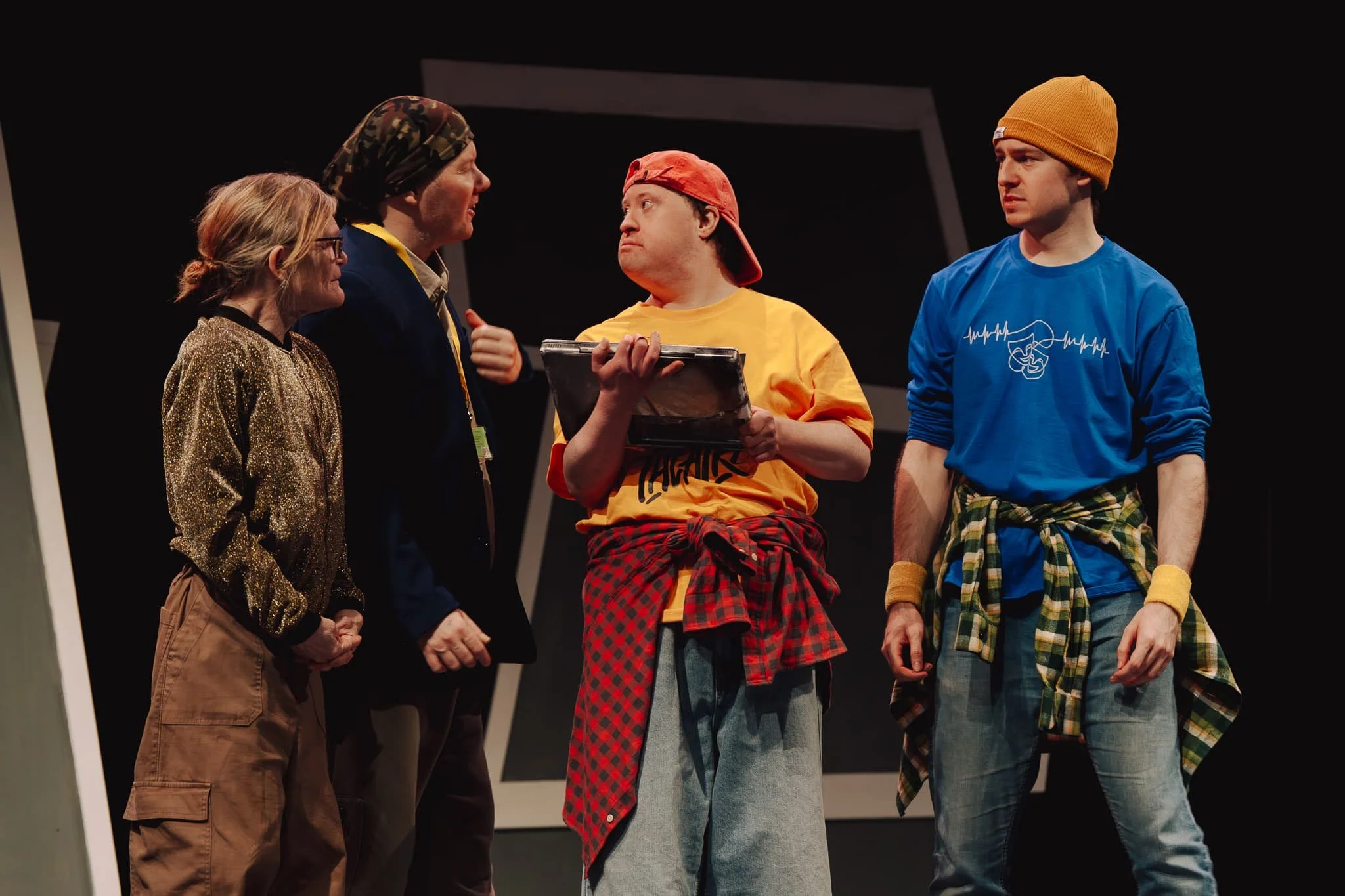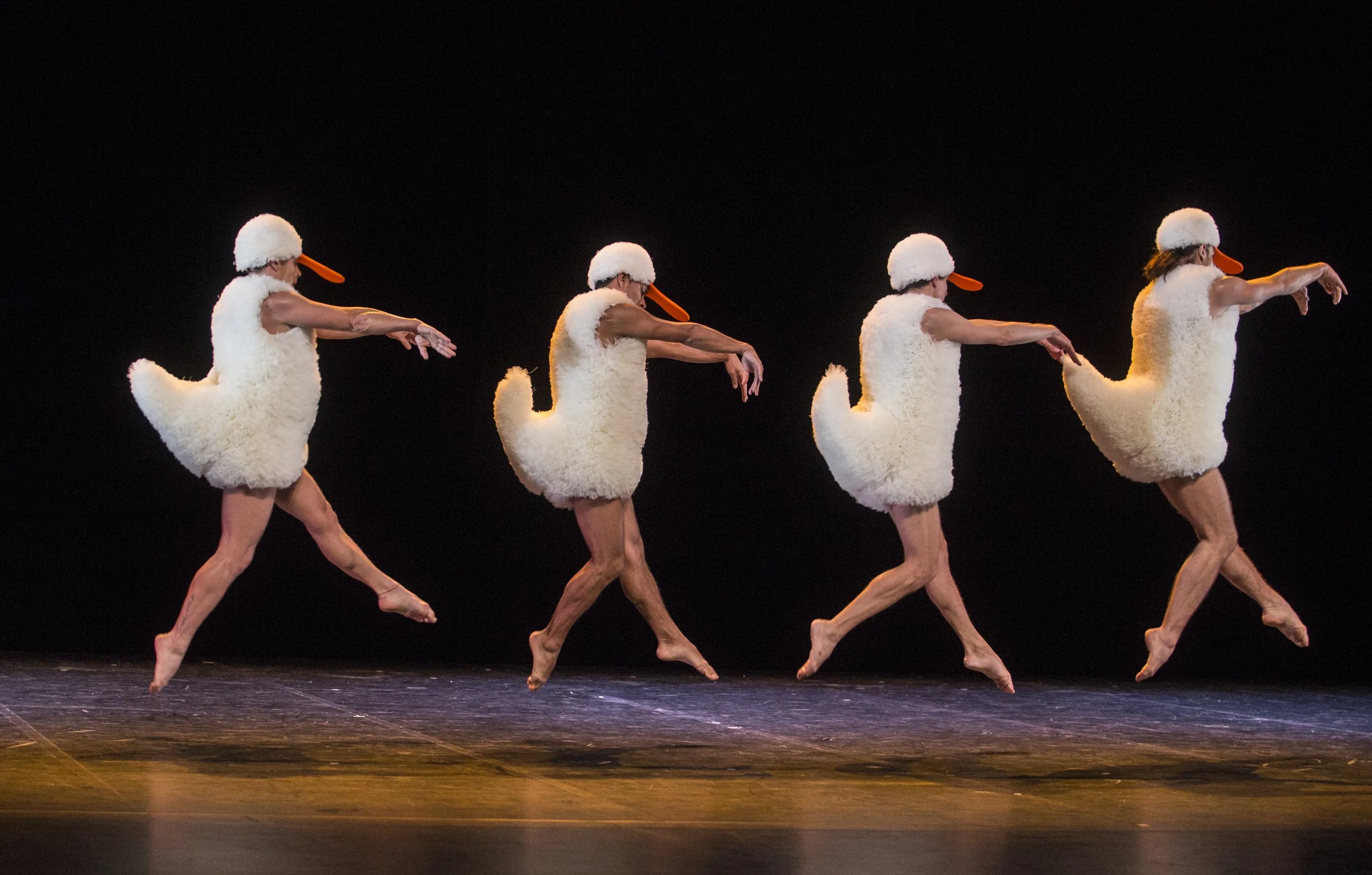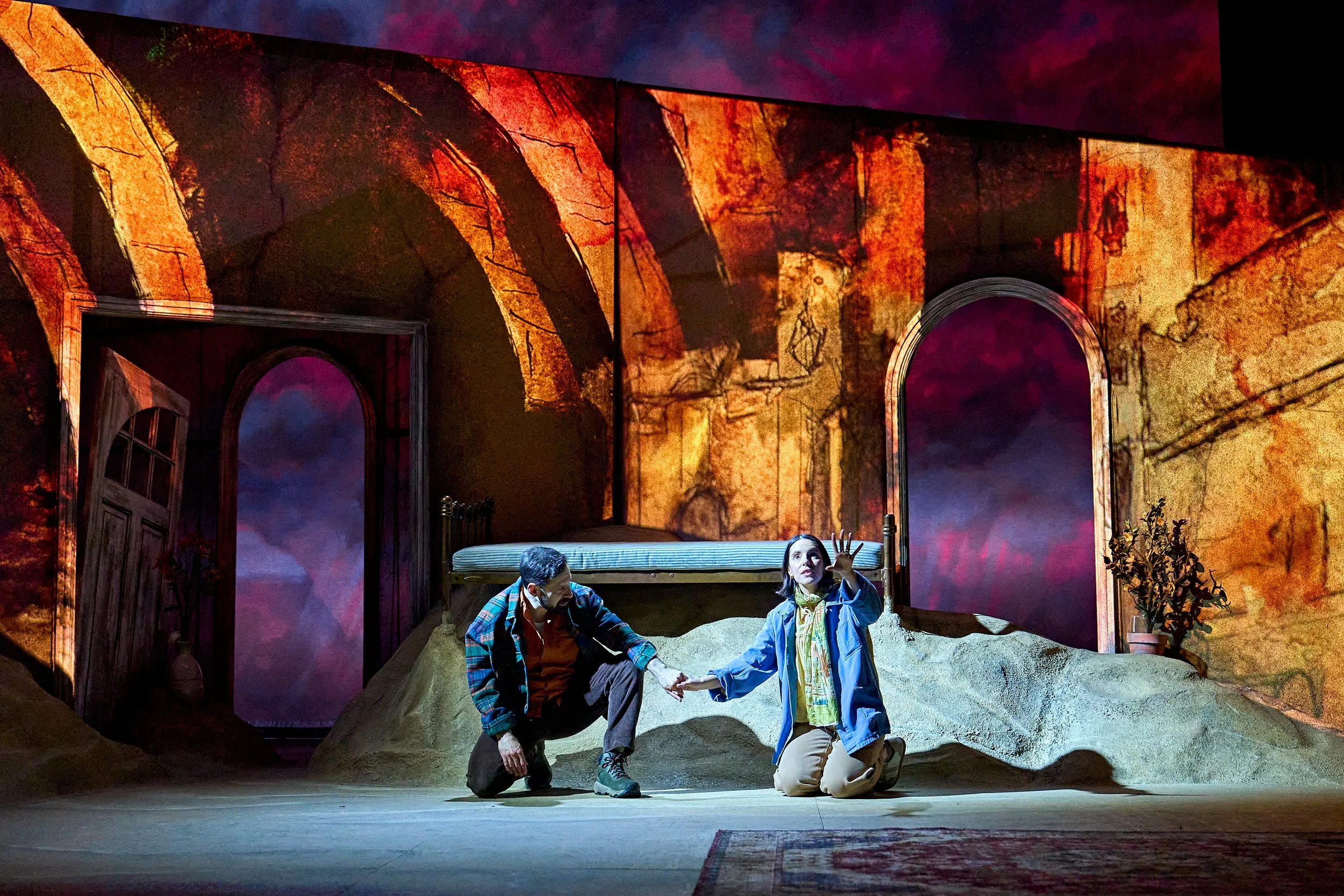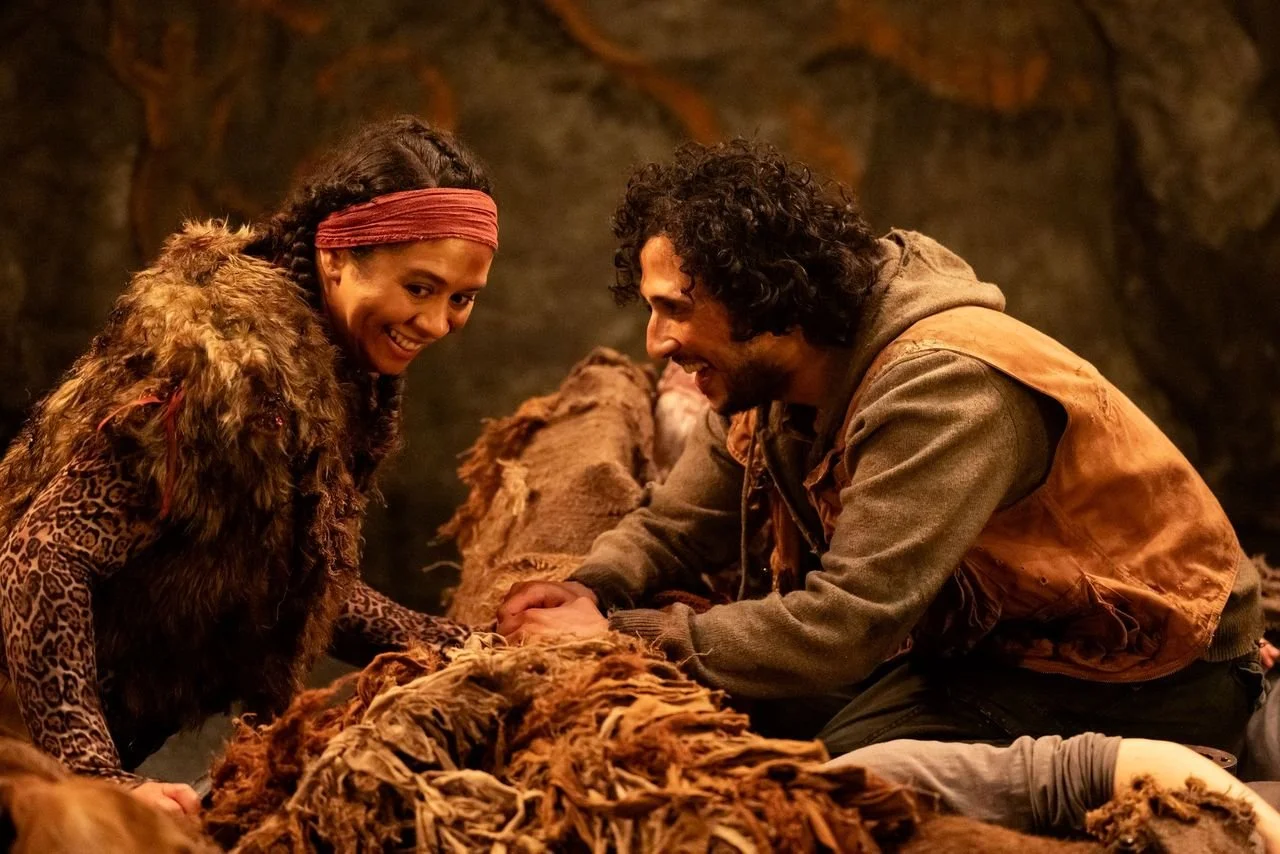Petty Men at Arcola Theatre Review
Photo by Olivia Spencer
Written by Wendy for Theatre & Tonic
Disclaimer: Gifted tickets in exchange for an honest review
Shakespeare’s works have been performed in countless forms, yet Petty Men, a play inspired by Julius Caesar, brings a refreshing new twist. Co-written by John Chisham, Júlia Leval, and Adam Goodbody, and directed by Júlia Leval, the production has arrived at the Arcola Theatre for a run of just about one month. In this version of the tale, the protagonists are two characters who rarely take center stage in theatrical works: the understudies for Brutus (John Chisham) and Cassius (Adam Goodbody).
This day marks the 100th performance of Julius Caesar, yet the two understudies have still never once stepped on stage, and today will likely be no different. Even so, Understudy Cassius arrives early in the dressing room, warms up, and runs through his lines yet again. Understudy Brutus, on the other hand, shows up a few minutes late, then lazily settles in to chat with Understudy Cassius while playing a bit of tennis, and even brews some tea spiked with alcohol. At first, their conversation is casual. Understudy Cassius asks Understudy Brutus to quiz him on his lines, and soon enough, the two of them start acting scenes out - something they clearly do often. But today, things don’t stop there. As they continue talking, Understudy Cassius suddenly reveals his secret wish: for one of the performers onstage to have an accident so that he might finally get his chance to perform. And then, the accident actually happens. A substitution is needed - but neither of them wants to be the one who stays behind.
In the small space of Studio 2, several chairs are stacked to one side, while a clothing rack holds both their costumes and everyday clothes, along with a few pairs of shoes. On top of a cabinet sit everyday items: a microwave, a kettle, some cups, and even a plant that’s on the verge of wilting. Nearby, there is also a guitar, a table, a chair, and a mirror. This setup means that even when the actors have their backs to the audience, their expressions can still be seen in the mirror. In this way, a simple yet convincingly realistic dressing room is created (Tomás Palmer). Another important element in this dressing room is a speaker embedded in the wall, through which they can hear broadcast announcements from the Julius Caesar production. In addition, the show features something quite special: a subtitle screen above the stage for all the shows. Its function is not only to display all the dialogues for the audience (Perri Schofield). When the Understudy Brutus removes his hearing aid, the text blurs into an unreadable haze. When urgent knocking is heard from outside the room, a red question mark suddenly appears on the screen, heightening the tension. At many moments, the subtitle screen contributes even more to the mood than the flickering lights (Lucia Sánchez Roldán).
I actually really enjoyed the everyday, down-to-earth elements in the first half of the play. Whether it was the two understudies chatting back and forth to the sounds of popcorn popping in the microwave or the kettle boiling, or the sudden power outage that plunged them into darkness, everything felt natural. The personalities of the two actors were also portrayed very clearly: Goodbody’s Understudy Cassius is earnest and hardworking, with a kind of almost naive determination; Chisham’s Understudy Brutus seems laid-back, but in reality cares deeply about many things. At one point, one of them turned away in mild frustration and began to strum his guitar, but the other one suddenly pulled out his violin and joined in. In an instant, what had been a slightly gloomy tune warmed up beautifully. It was also amusing how the two of them would, in the middle of a conversation, lightly clink their teacups together and say in an overly solemn tone, “To Rome.”
However, once their conversation shifted to wishing that the actor playing Caesar would have an accident so they could take his place onstage, the style of the production shifted abruptly, veering into an absurd, expressionistic mode. Although I was struck by what unfolded onstage, the meaning grew increasingly opaque, and it often became difficult to grasp what the characters were thinking. Compared with these visually intense sequences, I was far more moved when Understudy Brutus begged Understudy Cassius not to leave, pleading for them to stay here together and perform Shakespeare, Dead Poets Society, or anything else, just the two of them. Perhaps the casual chatter and impromptu acting of two people who may never set foot onstage yet still love theatre deeply is already compelling enough - and, in truth, even more affecting.
As a play built on the foundation of Shakespeare’s work, I really appreciate that it doesn’t rely entirely on long, direct quotations from the original text. Instead, it focuses more on the two characters’ own conversations. And in this process, when Understudy Cassius steers Understudy Brutus’s thoughts, the audience is naturally reminded of the story of Julius Caesar. In essence, they once again inhabit the roles they play in their production, and it’s an intriguing choice that the audience never learns the real names of the two understudies. In addition, much of their dialogue at the moment revolves around everyday life and the actor playing Caesar. They could easily dive into deeper topics, discussing their own backgrounds or even talking about more members of the company. After all, it’s rare for a dressing room to contain only two understudies. They could plausibly refer to colleagues who simply aren’t present in the room. Overall, Petty Men is certainly bold, full of its own ideas and striking moments; however, questions remain about whether these choices are the most effective ways of conveying what the play wants to convey.
Petty Men plays at the Arcola Theatre until 20th December 2025.
★ ★ ★




